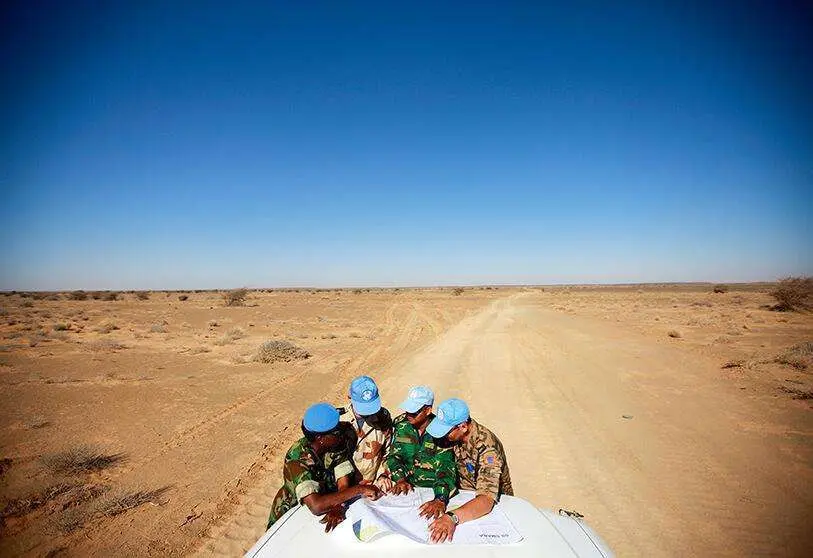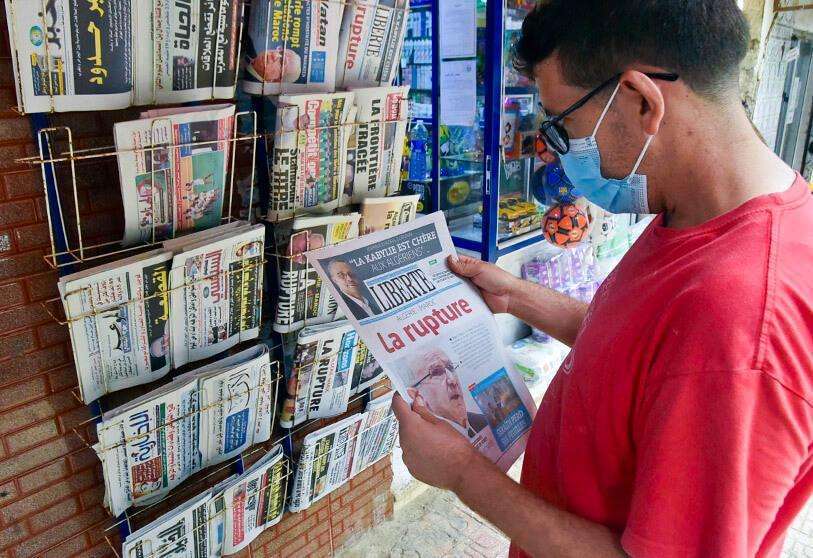El conflicto del Sahara, aún más enquistado tras la ruptura de Rabat y Argel

The Western Sahara conflict is more entrenched than ever following this week's breakdown of relations between Morocco and Algeria, the two countries most involved in a confrontation that has dragged on for almost half a century.
Yesterday, UN Secretary-General Antonio Guterres announced the appointment of Russian Alexander Ivanko as the new Special Representative and head of the UN Mission (Minurso) in the territory, and his appointment was misinterpreted in some media as ending the vacuum created after the resignation of the Personal Envoy for the Sahara, German Horst Köhler, more than two years ago.
However, a UN spokesperson clarified to Efe that the position of Personal Envoy "remains vacant" and that Ivanko only replaces Canadian Colin Stewart in a position that has to do with operational but not political issues.

The head of Minurso, resident in El Aaiún, heads this mission of blue helmets which for years has been reduced, by Moroccan imposition, to a mere observation of the ceasefire, and which, unlike other peace missions, has no role in human rights monitoring and has no contact with civil society in the Sahara.
Countries such as Spain, France and the United States have repeatedly urged the Secretary General to appoint a Personal Envoy to bring the contenders to the table and try to find a political solution, although Guterres himself has acknowledged that this is not an easy task after having unsuccessfully sounded out several candidates.
The last name to be leaked earlier this year was that of the Italian-Swedish diplomat Staffan de Mistura, supported by the Polisario and apparently vetoed by Morocco; in the past, it has been the other way around: candidates backed by Rabat were systematically vetoed by Algiers.

When Köhler resigned from his post in May 2019, he cited "health reasons" that sounded like an excuse, since it escaped no one's notice that during his mandate he did not manage to move the irreconcilable positions of Morocco and the Polisario one iota, not even in the two rounds of talks between the parties that he facilitated in Geneva in 2018 and 2019: in those talks, the rivals did not even sit at the same table.
At the end of those frustrated talks, Morocco made it clear that it did not intend to return to a hypothetical negotiating table unless the other country with interests in the area, Algeria, which for Rabat is the one that hosts, arms, finances and directs the Sahrawi movement, sat at it, and not with a simple observer status.
It is now more complicated than ever for Algiers and Rabat to sit down at the same table, after the Algerian government announced last Tuesday a diplomatic rupture with its western neighbour, which it accused of various acts of hostility; the following day, the Moroccan government ordered its embassy in Algiers to be vacated.

In reality, the closure of embassies was practically the last thing left to break between two neighbouring states whose land borders have been closed since 1994, who have no common trade and who do not even share information on terrorism or emigration in an area where these problems define their geopolitical depth and mark their relationship with the European Union.
Without a Personal Envoy appointed by Guterres, without diplomatic relations between the two heavyweights of the Maghreb, in which it finds itself: while Morocco offers only an all-or-nothing autonomy of vague contours, Polisario demands a referendum with the option of independence.
And although the Polisario broke the ceasefire with Morocco last November, thus putting an end to a thirty-year truce, this move has not managed to move the chessboard either: neither Morocco has publicly referred to this war, nor has the Security Council.
If Minurso indicated it in its internal reports to the Council, high politics put it in a drawer, turning it into a non-existent war.









